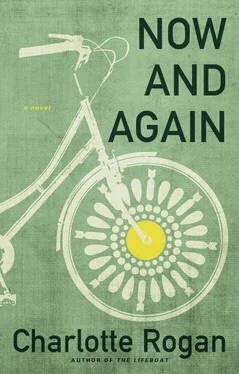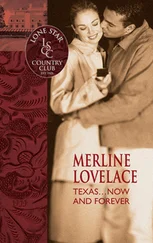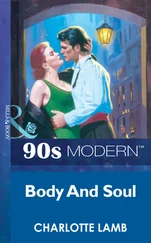“So what would Maggie Rayburn do?
“Apparently she’d leave her husband and her son. Apparently she’d leave her job without giving her employer so much as a chance to replace her. Apparently she’d take from her workplace things that were not hers to take.”
The pastor’s voice lacked emphasis. He let the facts speak for themselves.
“And the truth is that Maggie Rayburn took it upon herself to tell the judges and the prosecutors they were wrong. And to the juries made up of people just like you, she said, ‘You don’t know your business.’ Why, I bet she’d walk right up to the president if she got a chance and say the same thing. And I don’t mean the president of the Ladies’ Auxiliary. I don’t mean the president of the PTA.”
Pastor Price let this sink in, and then his voice boomed out again. “I am referring to the President of the United States! I have no doubt she’d say the same thing to all of us who are sitting right here today. She’d say we don’t know our own business. But Maggie Rayburn does. There’s a word for this, and the word is ‘hubris.’”
Price knew the word was foreign to many listening ears, but he didn’t define it. He wanted people to ask each other about it at the coffee hour. He wanted them to look it up in their dictionaries and on the Internet. He wanted the conversation to reverberate long after the ringing of the end-of-service bell. And then, if Maggie dared to say anything about any of the other secrets she had stolen, people would remember the word and say to themselves, Hubris! This is exactly what the good pastor was talking about.
“So if you hear any of our lovely elderly people or any of the scions of our town or any of our beautiful little children ask each other, What would Maggie Rayburn do? you are not to sit silently by. You are not to let the question go unanswered, for silence in this case is the worst kind of lie. You are to tell them, Maggie Rayburn would spit in your eye. Maggie Rayburn would open the doors of the prisons and loose the murderers and rapists upon your sons and daughters. Let’s just hope there aren’t any terrorists locked up in there, for no doubt Maggie Rayburn would let them out too.
“You tell them that not because I told you to. You tell them that because it is the truth.”
The sweat was pouring down inside the pastor’s cassock. It was dripping from his neck and burning the skin behind his ears. His hair, which he had grown a little longer on the advice of his stylist and over his wife’s objections, was slick against his collar. He gloried in the animal strength of his body, flesh and blood lit by the spirit, and he thrilled with the truth of how God and man had come together in Jesus Christ. When the choir started up, it was as if the holy waters had broken and an ocean of sound engulfed the room. The new blue satin choir robes shimmered like quicksilver, and when the arc lights went out, their metallic piping caught the light from a thousand candles that had been lit for the Church of the New Incarnation’s television premier.
9.5 Tula
The studio audience was holding its breath while the girlfriend, who had clearly been coached to draw out the delivery of her lines, turned her poker face to the camera before opening her lips to declare, “Yes, Gary, you are the father!”
“Didn’t I say?” Tula sighed. She had known it all along.
After Maggie left, Tula went to the house most Sundays to keep Will company, and now they were sitting on the couch watching TV. “Didn’t I say it when she first came on?”
“You were right.” Will was staring at the screen, but he didn’t seem to be paying attention either to it or to Tula.
The announcer blared, “Next up on our program: an obese teenager confronts the mother she believes is sabotaging her weight loss attempts in order to keep her daughter for herself.”
“It’s cold in here,” said Tula.
“You can borrow one of my mother’s sweaters if you want. I think she keeps them in the chest.”
Without Maggie, the house seemed dirty and defeated. The kitchen counter was littered with empty soda cans and fast-food wrappers, and someone had left a pile of laundry on the floor near the washing machine as if it would magically wash itself. Tula’s instinct was to gather everything up and either put it in the trash or wash it, but she stopped herself and made her way down the narrow hallway toward the bedrooms.
Only in Will’s room was everything tidy and clean. A few of his Transformers robots remained on the bureau top, but they were lined up against the mirror instead of positioned for an attack. It seemed that things were missing from the walls too, even though she couldn’t remember how the room had looked before. The closet was similarly spartan: shirts arranged by color; baseball uniform neatly folded; mitt freshly oiled, a new ball in its jaws.
Lyle’s room was as chaotic as Will’s was neat. Clothing had been flung here and there, and most of the bed coverings were on the floor. The blinds at the windows were cocked, and dead flies littered the windowsills. The drawers of a small chest were open to varying degrees, and a tipped-over chair hadn’t been righted. Tula opened the drawers of the larger chest one by one, starting at the top: socks and underwear, nightgowns, T-shirts, shorts. The bottom drawer stuck on its tracks, so she had to kneel to open it. But when she reached beneath a blue cardigan, her hand hit a stack of magazines. She pulled one out at random and opened it, but instead of finding an article revealing the identity of the sexiest man alive, she found a government document with TOP SECRET written in red letters across the top. Folded inside it was a letter from Dolly Jackson introducing herself and asking Maggie if she had ever come across a report linking munitions to birth defects. Stapled to the letter was a photograph of a baby with a huge purple tumor growing from its mouth.
Tula sat on the floor and took out the magazines one by one. Then she looked through the house until she found a large cardboard box. As she packed the documents into it, she was thinking how the secret cache explained the recent changes in Maggie. She was also thinking how it would serve Mrs. Winslow right if she finished what Maggie had started and exposed whatever the great men of Red Bud were trying to keep quiet. It would serve Sammi Green right too — not that Sammi had ever done anything bad to Tula. In fact, it would teach a lesson to the entire town. You couldn’t clean house without getting your hands dirty. You couldn’t make an omelet without breaking some eggs. Purity, she thought, as she carried the box out to her mother’s car. What did purity even mean?
Tula was trying to decide whether or not to show Will what she had found, but when she returned to the living room, Will didn’t seem to notice that she had been gone for nearly an hour. He was still slumped on the corduroy couch, his eyes glassy and his ears red with cold. “Hey,” said Tula, peering from Will to the television screen. “Isn’t that the pastor from your church?”
Will didn’t say anything, and it took a moment before it dawned on Tula that the pastor was talking about Maggie. “Hey,” she said again. “Isn’t he talking about your mom?”
Instead of answering her, Will got up and turned the television off. “Where would you go if you could go anywhere?” he asked her.
“Somewhere warm,” said Tula. “Somewhere with turquoise water and white sand.”
“I’d go to the Middle East,” said Will. “To Afghanistan or Iraq.”
“No you wouldn’t,” said Tula.
“Yes,” said Will. “I would.”
After that, Will grew more distant. He started to miss school. Every so often Tula went by his house to look for him, but most of the time he wasn’t there. Why had he mentioned Afghanistan and Iraq? But there was only one reason to mention them, or only one she could think of.
Читать дальше












